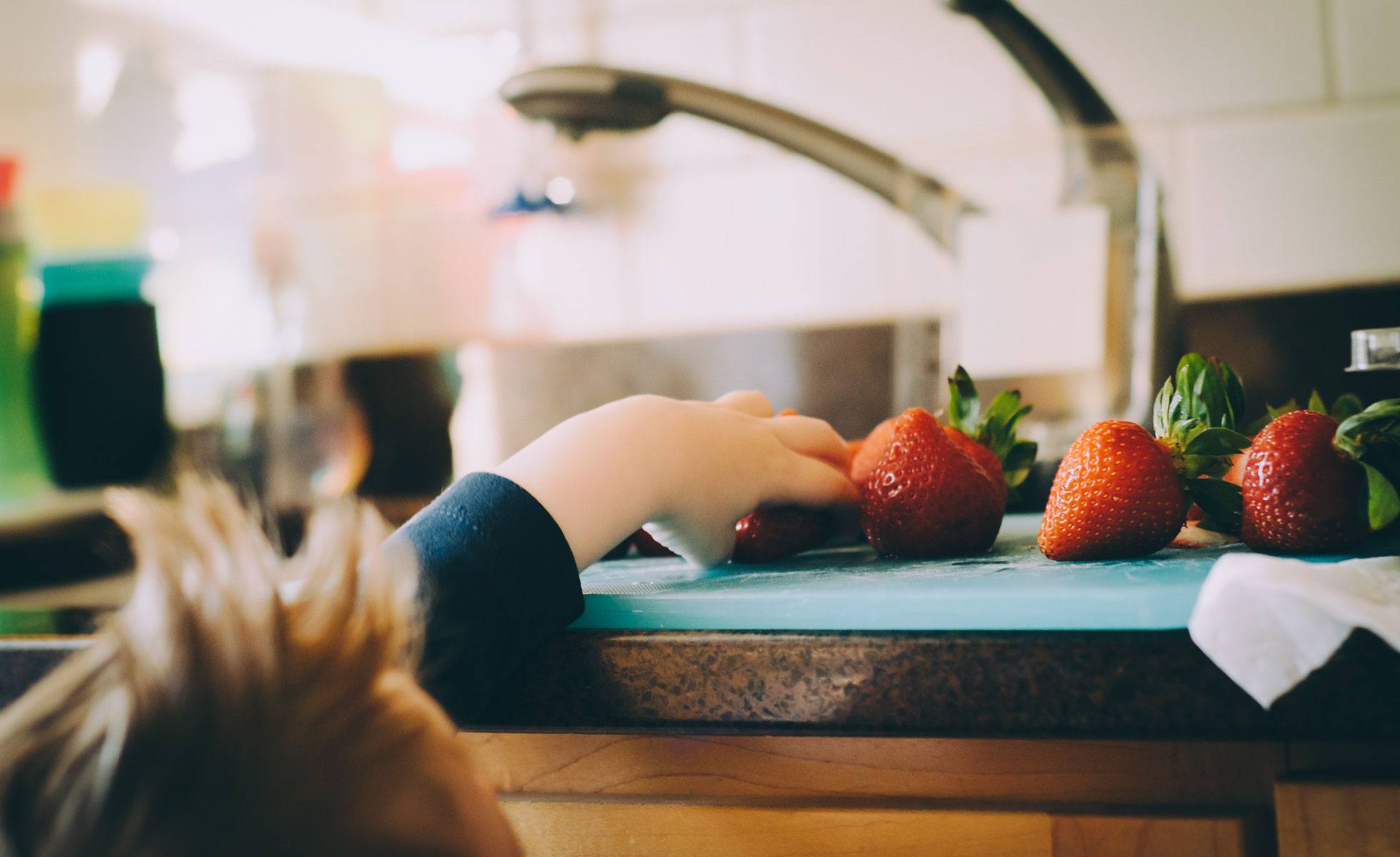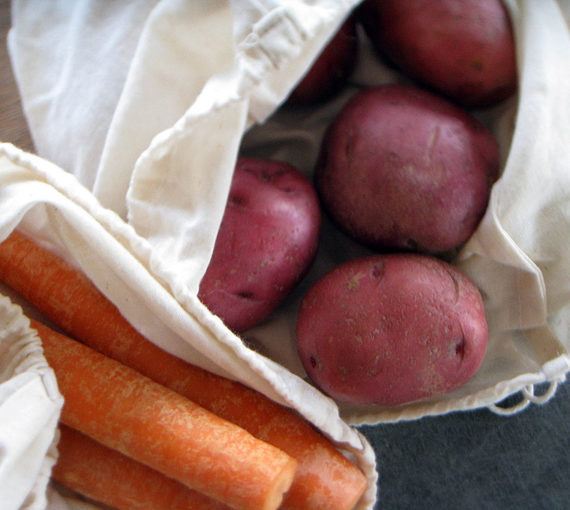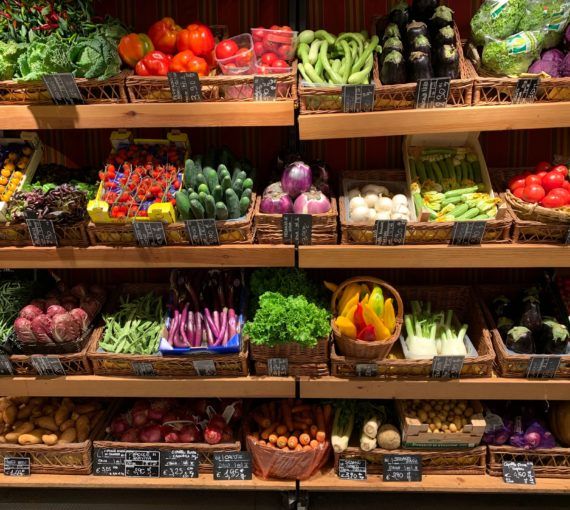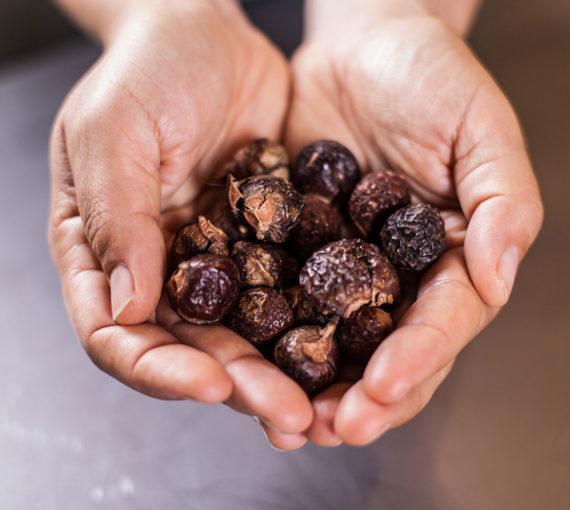
Even if your fruit and veggies are organic and local, they’re bound to carry insects, dirt, germs and pesticide residues. (Photo: Kelly Sikkema via Unsplash)
You tote reusable shopping bags to the store. Bring eco-friendly, fabric produce bags along, too!
These lightweight drawstring bags are often sold in sets of three or more. They make it easy for cashiers to weigh your items AND for you to carry and organize your purchases. They’re washable, reusable, come in a variety of sizes and styles (e.g., loose or close weave) and the stretchy kind can carry a lot of stuff. They’re also an excellent way to stop using plastic — even paper — produce bags.
Benefits of refusing plastic produce bags:
- Earth doesn’t need more plastic.
- Recycling plastic isn’t the answer.
- Grocery stores are going zero waste; we should, too.
Six other uses for reusable produce bags
- Lunches (easy for kids to open)
- Bulk dry goods (nuts, seeds, beans, flours, etc.)
- Over a countertop fruit bowl to lock out fruit flies
- Over a mason jar to sprout seeds
- To hold whole spices when making chai, steeping mulling spices, etc.
- To strain yogurt or almonds (when making almond milk)
Buy reusable produce bags at your local grocery or zero waste store or online.

DIY
Sew your own reusable produce bag or find “how-to videos” that repurpose T-shirts (no sewing required).
Washing fruits and vegetables
Once you get your produce home, it’s time to wash it!
From the farm to the store, lots of people touch, sniff and sneeze on produce. Even if your fruit and veggies are organic and local, they’re bound to carry insects, dirt, germs and pesticide residues.
Don’t buy fancy produce washes. Make your own! It’s cheaper and avoids plastic containers.
Tip: Wash produce before eating, NOT before storing (which will make it rot faster).
Tip: Firm-skinned (e.g., melons, citrus fruits) needs warm water, a scrub and rinse. Soft-skinned (e.g., strawberries, grapes) needs to soak for a few minutes.
Five ways to wash
Eco-friendly liquid soap
Choose unscented, liquid castile soap. Add a squirt to a sinkful of water.
Eco-friendly dish soap
Add a squirt of to a sinkful of water. Dish soap should NOT contain fragrance, dyes or Triclosan (antibacterials). It should be biodegradable and not tested on animals (look for the leaping bunny logo).
Vinegar
Add one part plain white vinegar (or apple cider vinegar) to four parts water. Soak, then rinse.
Soap nuts
Soap nuts are fruit (not nuts!) that grow on trees in Nepal and India. Find them in health food stores, organic grocers or online. Stir a few into water to release the natural saponin in the shells. Make the solution as needed. Use nuts a few times before composting — maybe in a load of laundry?
Vegetable glycerin
Find this plant-derived, simple cleanser at organic grocers or health food stores. Add a squirt to a 500-millilitre spray bottle of water. Use to scrub produce. Rinse.



